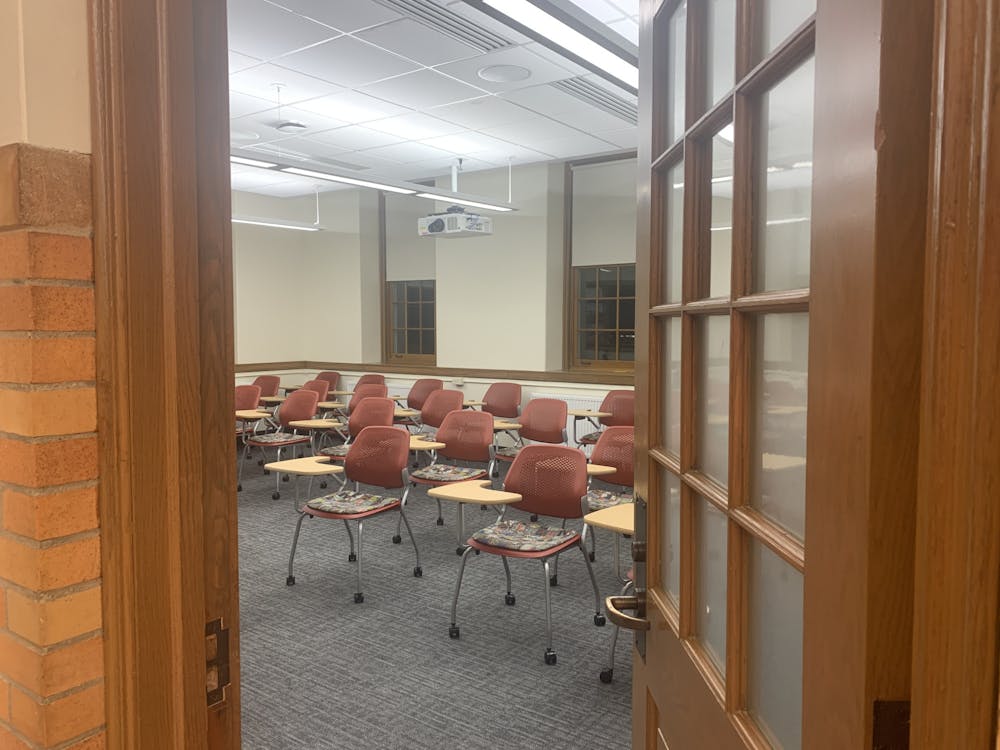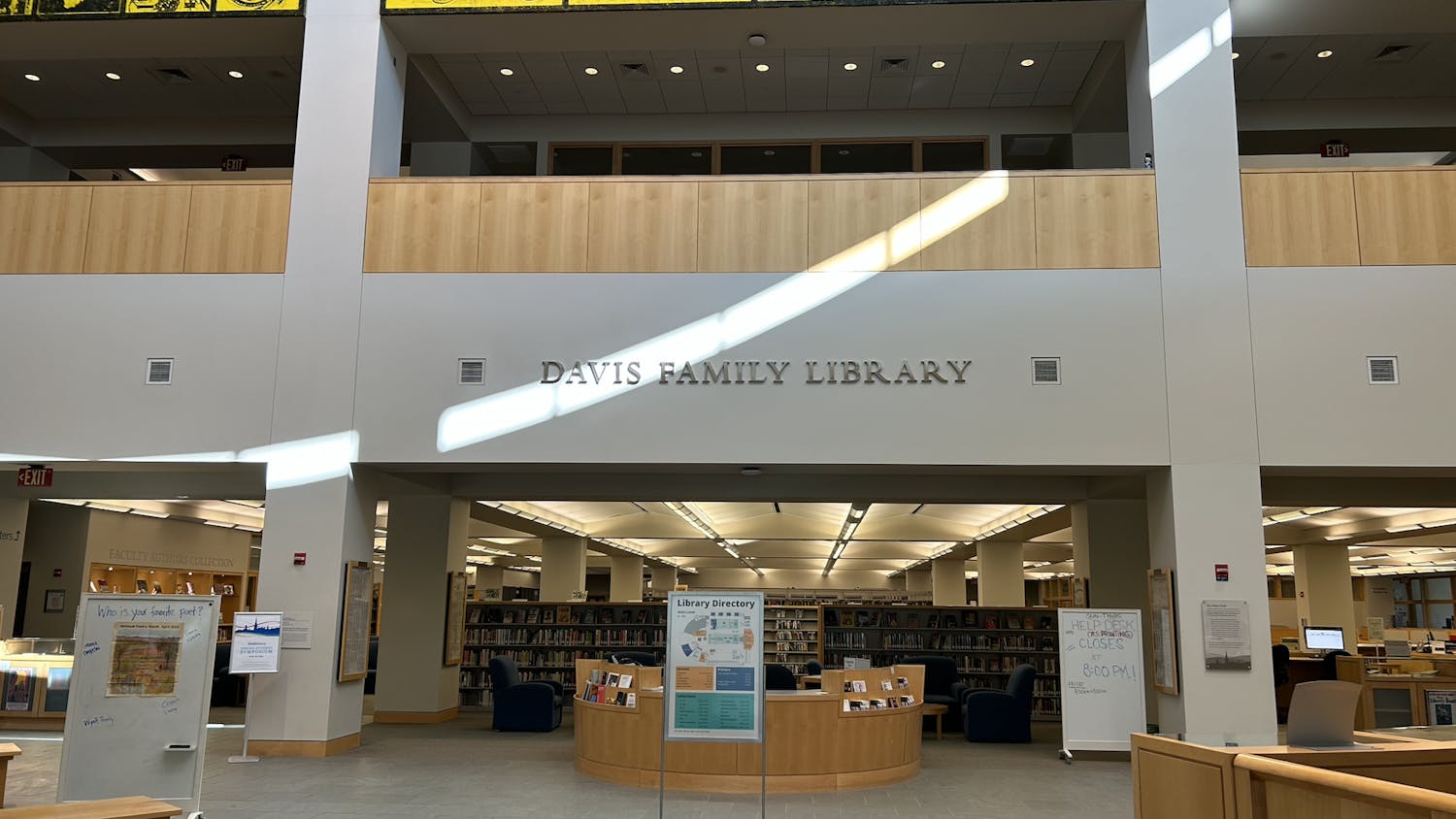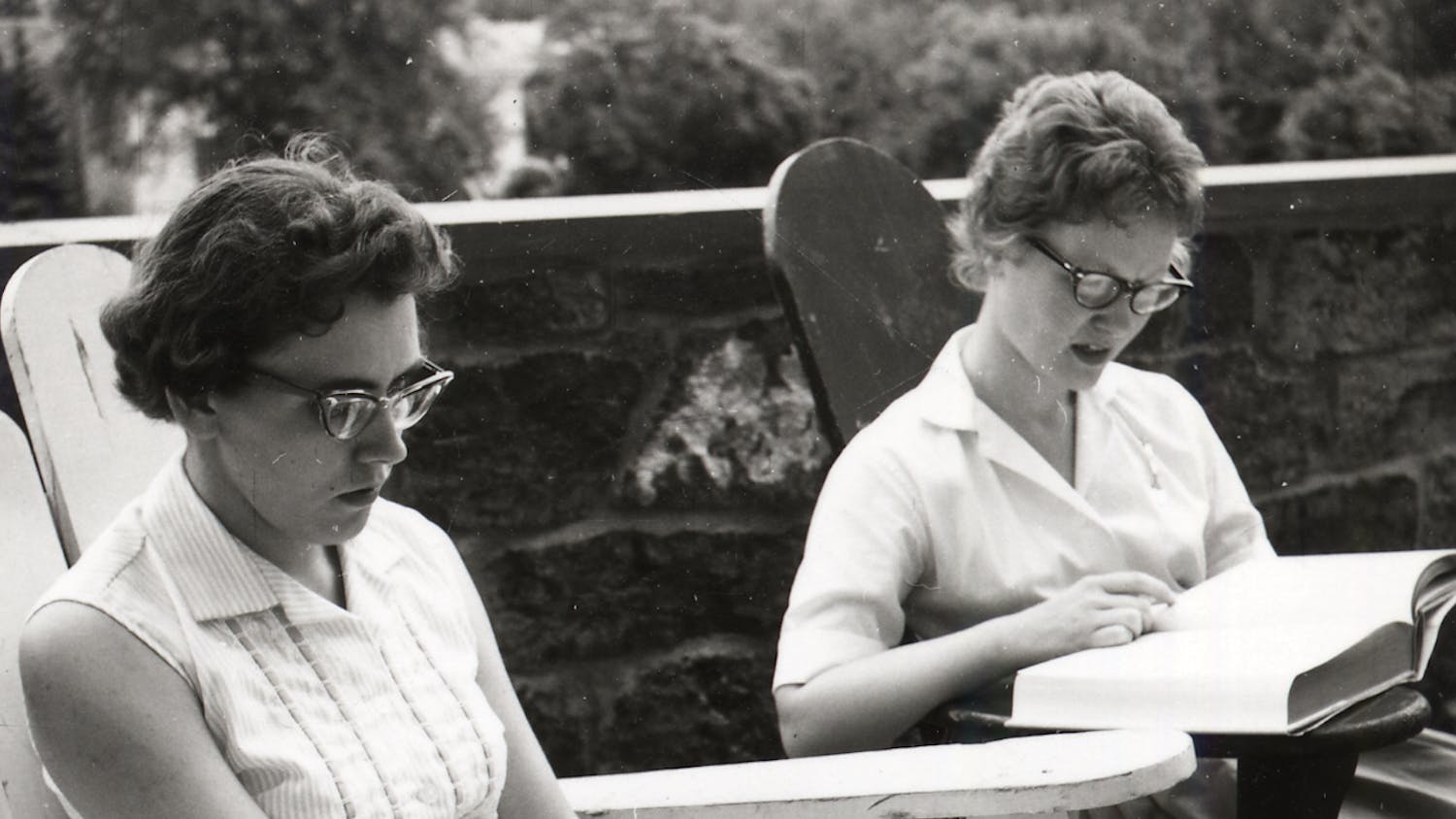In one of my in-person midterm exams this term, I observed cheating on an egregious level. With phones in their laps, four students copied down answers from their screens. They showed their exams to one another and copied down answers from each other’s papers. They whispered loudly to one another, discussing questions and answers as if there were no one else in the room. This went on for the entirety of the two-hour exam. Another student, sitting by themselves in a different part of the room, used their phone, which sat covertly in the top pocket of their backpack.
The fact that this group of students felt comfortable being so conspicuous with their cheating underscores the tenacity of the culture of cheating at Middlebury; they knew that their peers would be able to notice their cheating, but they still did not expect to get told on or punished. While this episode of cheating was unusually blatant, it is not the first I have seen, and I don’t expect it to be the last. In various midterms and finals, many of which were for classes in economics, my major, I’ve seen students use their phones under the table or take their phones to the bathroom. Economics is currently the only department that proctors exams; an exception to the Honor Code was made in response to persistent and rampant incidents of cheating. In the middle of one exam, my professor announced to the class: “I can see when you go on Canvas in the bathroom in the middle of the exam.” Usually, though, professors are oblivious.
I’m not interested in snitching on any cheating students. In fact, I believe that the cheaters themselves are only partly to blame. It shouldn’t be surprising that cheating is common at a college with such lax policies surrounding academic dishonesty. The Honor Code, written and implemented as is, does not actively prevent cheating nor does it create an environment where action against cheaters tends to occur. Instead, the Honor Code relies on the assumption that the student body “values academic integrity as a way of life.” Under the Honor Code, faculty are also required to “support an intellectual environment of trust and respect for students by giving unproctored exams.”
Unfortunately, the “intellectual environment of trust and respect” is an unattainable utopia. Administrators overestimate students’ commitment to this mission. Cheaters will exist at every academic institution, no matter how elite or justice-oriented. As a college that aims to provide a lifetime of opportunity for every student, Middlebury’s role should be to disincentivize cheating and to create an environment where students feel comfortable reporting it when it occurs. This would level the playing field among students. Middlebury students are smart enough to know that cheating can distort formal and informal curves, as well as professors’ views on the student body as a whole. A culture of cheating can incentivize honest students to cheat, as well, so as to compete academically — if some kids are getting a higher grade from cheating, shouldn’t I cheat as well?
Reporting cheating is not so simple. The Honor Code states: “Any member of the College community (student, faculty or administrator) who is aware of a case of academic dishonesty is morally obligated to report it to the professor or the Office for Community Standards.” However, no one wants to be known as a snitch, and there’s no such thing as anonymity when reporting leads to an investigation. Moreover, proctors in the economics department are students who are socially intertwined with the exam-takers in the room, so they may feel social pressure to keep quiet about cheating in order to protect their reputations. Replacing student proctors with professors and proctoring exams in every department is the most effective way to disincentivize cheating on in-person exams.
There are always going to be some students who disobey the Honor Code, especially in environments where it is harder to enforce. AI chatbots like ChatGPT are making it easier than ever to turn in work that is not one’s own. There are few ways to prevent students from obtaining past exams from their friends. There are few ways to ensure that students won’t look at their notes during take-home exams. These are different challenges with less obvious solutions, but professor-proctored exams in every department are an easy way to make it harder for students to cheat on in-person exams. By leaving exams unproctored, Middlebury is fostering an environment where cheating is permissible — even implicitly encouraged — and honest students lose out.

Hannah Sayre '24.5 (she/her) is the Editorial Board Director.
Hannah is an economics major and mathematics minor, graduating in February 2025. Hannah joined the Campus in the spring of 2023 as an Opinions section editor and became Editorial Board Director in the fall of 2023. During her free time, Hannah enjoys running, skiing, playing tennis, cooking, and reading. After she graduates, Hannah will be living and working in Boston.




